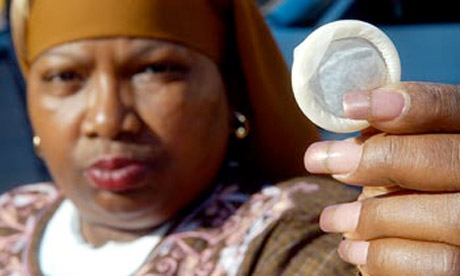
The last thing you want to find out when you're serving out a jail sentence for drug possession is that you are HIV positive. That is what happened to Waheedah Shabbazz-El, a former US postal worker who developed a serious drug addiction that ultimately led to her being sent to prison for six months.
"Jail is a terrible place to find out you have Aids," Waheedah said. She later learned that as an incarcerated African American, she already had two strikes against her when it came to the likelihood of being diagnosed with HIV. Increasingly, it seems the two issues are more than a little intertwined.
The rate of HIV among prisoners in America is five to seven times higher than it is among the general population, with African Americans and African-American women, in particular, having far higher rates of infection than any other group. Black Americans are seven times more likely than white Americans to become infected.
A 2006 study by researchers at the University of California at Berkeley (pdf) discovered clear links between these two disturbing statistics. It found that the dramatic surge since the 1980s in black Aids patients, particularly black women (who are 23 times more likely than white women to be diagnosed with the virus), closely tracks the record increase in the number of black men who have been sent to prison during the same period. In certain urban areas like Detroit, Newark, New York and Washington, DC, where large numbers of black men experience incarceration, the HIV infection rates among the black population (pdf) are on a par with Sub-Saharan Africa.
Though studies have found that most HIV+ inmates are infected before they enter prison, incarceration offers ample opportunities to spread the virus. High-risk behaviors such as injecting drugs, tattooing, body-piercing and unprotected sex (consensual and otherwise) are not uncommon in a prison setting. Needless to say, despite the fact that no one doubts that unsafe sex and unsafe drug use happens in prisons, there is no great rush to start distributing condoms or clean syringes to inmates. Prison officials tend to prefer to look the other way and pretend it's not happening. This short-sightedness is not just damaging to prisoners, but to the communities they hail from (and will return to) – and, therefore, to public health in general.
As African Americans are far more likely to end up in prison than any other ethnic group, it's little wonder the black community is now being so adversely affected by the Aids epidemic. According to C Virginia Fields, executive director of the National Black Leadership Commission on Aidss, Inc (NBLCA):
"Aids thrives on social disruptions and there's nothing more socially disruptive than taking a disproportionate number of men from one community and locking them away for extended periods of time."
Studies have found that black men tend to contract Aids through intravenous drug use and black women tend to contract aids primarily through unprotected sexual contact. When the ratio of men to women in a community becomes skewed, it leaves those women with limited options in their choice of partner and gives men undue power, which the latter sometimes exploit (refusing to use condoms because of decreased sexual satisfaction and so on). Fields said there is a direct link between women in dependent (or violent) relationships and HIV, for the very simple reason that these women cannot get their partners to wear a condom.
Waheedah contracted HIV through having unprotected sex long before she entered prison. In some ways, she has prison to thank for saving her life because it was in prison that she was first diagnosed and treated. But, unsurprisingly, the care she received as a prisoner with Aids was somewhat lacking. Getting the right cocktail of drugs, and getting them on time, were challenges, to say the least. Some of her drugs needed to be refrigerated, which is often a major problem for infected prisoners as medical staff often "forget" or are unable to deliver refrigerated drugs to inmates' cells.
The bigger issue, however, was the stigma involved. No one wants to come near you in prison if they know you have Aids, so most people try to hide their diagnosis. This stigma stays with many Aids patients after their release. Benjamin Green, a former prisoner with HIV, threw his stash of medicine over a bridge when he left prison because he didn't want his family to find out he was infected.
Both Waheeda and Benjamin now devote considerable time and resources to raising Aids awareness in their community. In fact, many prominent African Americans have been leading the way on curbing the spread of Aids. Congressman Charles Rangel (Democrat, New York) introduced the Elimination of HIV/Aids Act in 2009. Congresswoman Maxine Waters (Democrat, California) has sponsored several Aids-prevention initiatives – most notably, the Stop Aids in Prison Act, which passed the House of Representatives last year, but has been stalled in the Senate. President Obama did his bit, too, with the Affordable Care Act, which (assuming it is not undone by the US supreme court) guarantees that HIV patients cannot be denied coverage because of their "pre-existing condition".
"The gay community made great strides early on in the battle against Aids," Fields says, "now, it's our turn."
Interested parties can write to:
Sadhbh Walshe
PO Box 1466
New York, NY 10150
Or send an email to: sadhbh@ymail.com

